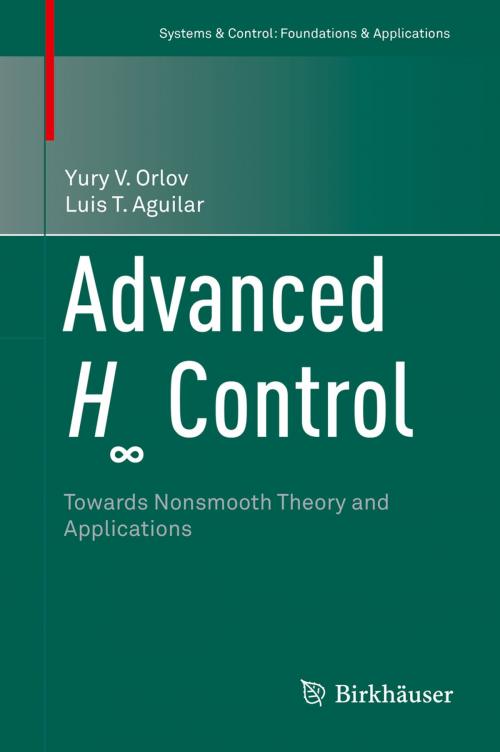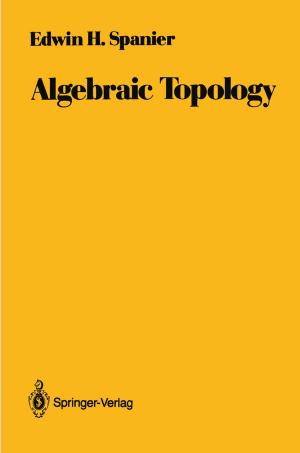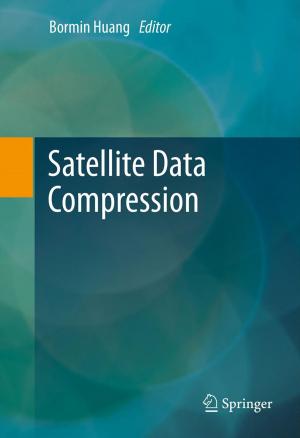Advanced H∞ Control
Towards Nonsmooth Theory and Applications
Nonfiction, Science & Nature, Science, Other Sciences, System Theory, Technology, Engineering, Mechanical, Reference & Language, Reference| Author: | Luis T. Aguilar, Yury V. Orlov | ISBN: | 9781493902927 |
| Publisher: | Springer New York | Publication: | February 20, 2014 |
| Imprint: | Birkhäuser | Language: | English |
| Author: | Luis T. Aguilar, Yury V. Orlov |
| ISBN: | 9781493902927 |
| Publisher: | Springer New York |
| Publication: | February 20, 2014 |
| Imprint: | Birkhäuser |
| Language: | English |
This compact monograph is focused on disturbance attenuation in nonsmooth dynamic systems, developing an H**∞ approach in the nonsmooth setting. Similar to the standard nonlinear H**∞ approach, the proposed nonsmooth design guarantees both the internal asymptotic stability of a nominal closed-loop system and the dissipativity inequality, which states that the size of an error signal is uniformly bounded with respect to the worst-case size of an external disturbance signal. This guarantee is achieved by constructing an energy or storage function that satisfies the dissipativity inequality and is then utilized as a Lyapunov function to ensure the internal stability requirements.
Advanced H**∞ Control is unique in the literature for its treatment of disturbance attenuation in nonsmooth systems. It synthesizes various tools, including Hamilton–Jacobi–Isaacs partial differential inequalities as well as Linear Matrix Inequalities. Along with the finite-dimensional treatment, the synthesis is extended to infinite-dimensional setting, involving time-delay and distributed parameter systems. To help illustrate this synthesis, the book focuses on electromechanical applications with nonsmooth phenomena caused by dry friction, backlash, and sampled-data measurements. Special attention is devoted to implementation issues.
Requiring familiarity with nonlinear systems theory, this book will be accessible to g
raduate students interested in systems analysis and design, and is a welcome addition to the literature for researchers and practitioners in these areas.
This compact monograph is focused on disturbance attenuation in nonsmooth dynamic systems, developing an H**∞ approach in the nonsmooth setting. Similar to the standard nonlinear H**∞ approach, the proposed nonsmooth design guarantees both the internal asymptotic stability of a nominal closed-loop system and the dissipativity inequality, which states that the size of an error signal is uniformly bounded with respect to the worst-case size of an external disturbance signal. This guarantee is achieved by constructing an energy or storage function that satisfies the dissipativity inequality and is then utilized as a Lyapunov function to ensure the internal stability requirements.
Advanced H**∞ Control is unique in the literature for its treatment of disturbance attenuation in nonsmooth systems. It synthesizes various tools, including Hamilton–Jacobi–Isaacs partial differential inequalities as well as Linear Matrix Inequalities. Along with the finite-dimensional treatment, the synthesis is extended to infinite-dimensional setting, involving time-delay and distributed parameter systems. To help illustrate this synthesis, the book focuses on electromechanical applications with nonsmooth phenomena caused by dry friction, backlash, and sampled-data measurements. Special attention is devoted to implementation issues.
Requiring familiarity with nonlinear systems theory, this book will be accessible to g
raduate students interested in systems analysis and design, and is a welcome addition to the literature for researchers and practitioners in these areas.















